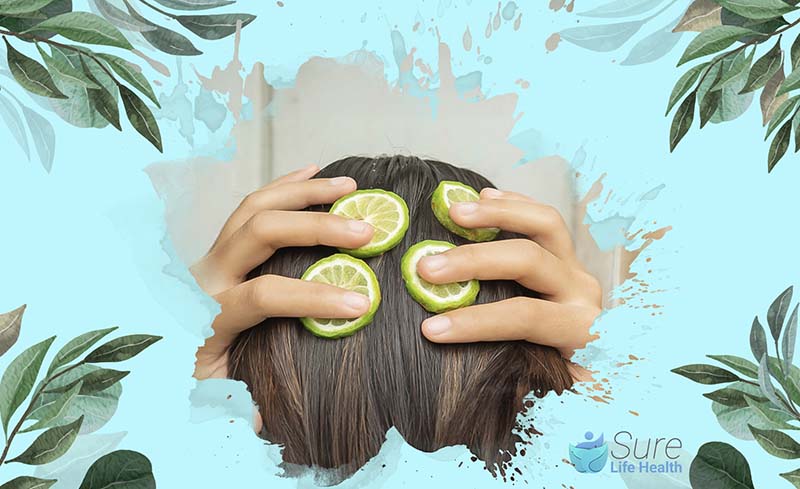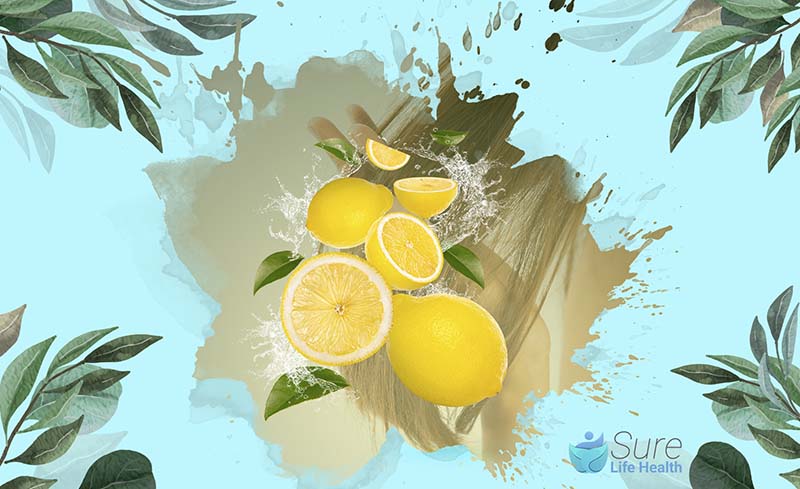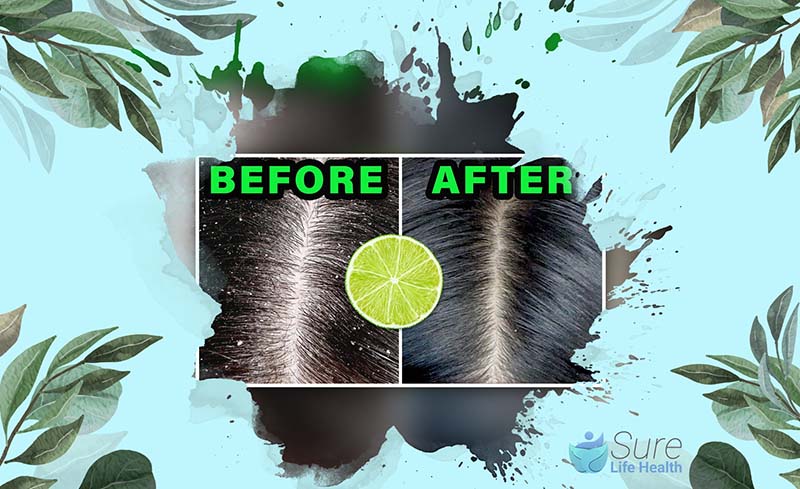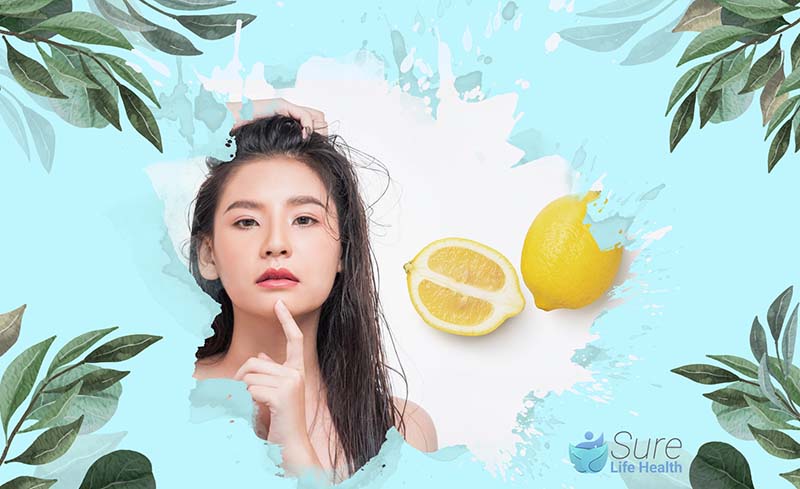Lemons are more than just a flavorful addition to your water or culinary creations. Rich in vitamin C, they help strengthen your immune system and reduce inflammation. Beyond their use in cooking and cleaning, lemons are also valued for their skin-brightening effects due to their natural bleaching properties.
Their benefits extend to hair care as well. When used in liquid form, lemons can offer numerous advantages for your hair. Explore the details below to understand how lemon is effective for hair, along with important considerations regarding its use and potential side effects. Is lemon good for hair? Let’s find out.
Is Lemon Good for Hair?
Using lemon juice for hair care might not seem like a traditional method, but its effectiveness comes from its rich array of nutrients and antioxidants. Containing citric acid, ascorbic acid, iron, potassium, calcium, phosphorus, limonene, linalool, various flavonoids, and other active compounds, lemon juice offers significant potential for enhancing hair health.
This powerful mix is particularly beneficial for addressing a variety of hair issues, including dandruff, hair loss, excessive oiliness, split ends, and scalp inflammation. Additionally, incorporating lemon juice into your hair care routine can improve the shine and overall appearance of your hair.
These benefits are derived from the significant impact of lemon’s active ingredients on hair follicles, scalp health, and the structural proteins in your strands.

7 Advantages of Using Lemon on Hair
Discover the numerous advantages of incorporating lemon into your hair care routine:
Controls Excess Oil in Hair
If you’re dealing with oily hair, lemon juice offers a natural solution. Its astringent properties help regulate excess oil production, leaving your hair looking less greasy and more voluminous.
This can extend the time between washes, reducing the need for frequent shampooing and helping to preserve the hair’s essential oils, which alleviates long-term oiliness.
Enhances Scalp Health
A healthy scalp is the foundation of vibrant hair. Lemon juice, with its ability to regulate oil production and its antifungal properties, fosters a healthier scalp environment.
It combats dandruff-causing fungi and provides hydration to relieve dry, itchy, and flaky scalp conditions. Lemon juice also helps prevent and manage scalp acne, promoting a clearer and healthier scalp.
Strengthens Hair Strands
Lemon juice is a natural source of essential nutrients, including vitamin C, which is crucial for collagen production, a protein vital for hair growth and strength.
It also contains antioxidants and nutrients like folic acid that nourish and protect hair follicles from damage. Regular use of lemon juice can strengthen your hair from the roots, reduce breakage, and enhance overall hair health.

Cleanses Hair Naturally
Switch from chemical-laden cleansers to the natural efficacy of lemon juice. This citrus wonder effectively removes dirt, excess oil, and product buildup without harsh chemicals.
Its acidic nature clarifies the scalp and hair follicles, rejuvenating your hair and maintaining its natural oils, making it suitable for all hair types.

Improves Natural Shine
Revitalize dull or unruly hair with the power of lemon. Rich in limonene and packed with antioxidants, lemon juice enhances hair’s smoothness and vitality.
It controls oiliness and imparts a glossy, silky sheen, transforming your hair into manageable and renewed strands with regular use.

Offers a Pleasant Natural Fragrance to Hair
Lemon juice not only cleanses and nourishes but also leaves your hair smelling fresh with its natural citrus aroma.
The uplifting and refreshing scent of lemon enhances your daily hair care routine, offering a delightful and subtle fragrance that is not overpowering like synthetic scents.
Combats Dandruff
Dandruff can be a persistent issue, but lemon juice serves as an effective natural solution. Its antifungal and cleansing properties target the underlying causes of dandruff, such as excess oil and fungal growth.
Mixing lemon juice with olive oil can gently exfoliate the scalp, removing dead skin cells and buildup that lead to flaking. The citric acid in lemon also helps absorb excess oil, making it especially beneficial for treating seborrheic dermatitis, a type of dandruff caused by overactive oil glands.

How to Use Lemon Juice for Hair Care
Lemon juice is a versatile ingredient that offers numerous benefits for your hair. It can promote growth, nourish your scalp, and much more. Here’s how you can take advantage of lemon juice to enhance your hair care routine:
- Hair Rinse: Creating a hair rinse is a quick and revitalizing treat for your locks. Mix 1/4 cup of lemon juice with warm water and pour it over your hair post-shampooing. Massage it thoroughly into your strands before rinsing it out at the end of your shower.
- Hair Mask: For a nourishing hair mask, blend 1 egg with the juice from half a lemon and 1 teaspoon of olive oil. Apply this mixture to wet hair, ensuring it’s evenly distributed. Leave it on for 20-30 minutes before rinsing with warm water and patting dry.
- Scalp Cream: Combine 1 tablespoon of olive oil with either 5 drops of lemon essential oil or 1/4 cup of lemon juice. Massage this blend into your scalp and leave it on for 1-2 hours or overnight. Rinse thoroughly the next morning to experience reduced inflammation.
- Castor Oil: Mixing castor oil with lemon juice is a popular remedy for combating dandruff and scalp inflammation.
- Olive Oil: Olive oil serves as an excellent carrier for lemon juice, helping to balance its acidity and prevent potential side effects.
- Aloe Vera: Combining lemon juice with aloe vera gel forms a potent antioxidant blend that shields your hair from damage, reducing breakage and minimizing split ends.
- Honey: As a natural carrier for lemon juice, blending honey with lemon juice in a hair mask enhances hair strength, reduces oiliness, and adds a brilliant shine to your locks.
Notes:
- Always perform a patch test before applying lemon juice directly to your scalp to avoid irritation, especially for those with sensitive skin.
- Lemon juice can make your hair more sensitive to sunlight, so use it in the evening or ensure adequate protection from UV rays.
- While lemon juice can help with oily hair, it may be drying for some, so adjust the frequency of use based on your hair type and condition.
Incorporate these lemon juice treatments into your hair care routine to enjoy healthier, more vibrant locks naturally.

Is Drinking Lemon Water Beneficial for Hair Health?
Lemons boast numerous health benefits thanks to their high levels of vitamin C, soluble fiber, and beneficial plant compounds. While there’s no solid scientific evidence directly linking lemon juice consumption to improved hair health, it’s essential to recognize its wider health benefits. Research indicates that lemons can aid in weight loss, reduce the risk of heart disease, anemia, kidney stones, and digestive issues. There’s also anecdotal evidence suggesting a potential role in cancer prevention.
Although specific studies haven’t yet backed the claim of lemon juice benefiting hair health, integrating lemons into your diet can still be advantageous due to their established health perks in other areas. Incorporating fresh lemon juice into your daily intake may contribute to overall wellness and could potentially indirectly benefit hair health. However, further research is needed to definitively establish this connection.
Notes: While lemon water may not directly impact hair health, its high vitamin C content supports collagen production, which is essential for maintaining healthy hair and skin. Additionally, staying hydrated by drinking enough water, whether infused with lemon or not, is crucial for overall health, including the health of your hair and scalp.

Does Lemon Juice Have Side Effects on Hair?
Lemon juice, often lauded for its potential benefits in treating dry skin and dandruff, comes with a cautionary note regarding its impact on hair and scalp health. While anecdotal evidence supports its efficacy, individuals with conditions like eczema or psoriasis should proceed with care due to the potent nature of citric acid, which may trigger skin irritation. If symptoms such as redness, increased irritation, or itchiness arise, discontinuing the use of lemon juice is advisable.
Moreover, a potential concern is phytophotodermatitis, a contact reaction to certain plants like lemons, oranges, parsley, and parsnips. This reaction manifests as inflammation, blisters, and subsequent dark pigmentation spots on the skin, lasting for weeks. Though not directly impacting hair, phytophotodermatitis can affect the scalp, especially when exposed to sunlight.
Precautions to Be Taken While Using Lemon on Hair
To maximize the benefits of lemon for your hair while minimizing potential side effects, consider these precautionary measures:
- Limit Exposure Time: Avoid leaving lemon juice in your hair for extended periods. Aim for a maximum duration of 15 to 20 minutes to mitigate the risk of irritation.
- Thorough Rinse: After applying lemon juice, ensure thorough rinsing with a mild shampoo. This step helps remove any residue and reduces the likelihood of irritation.
- Dilution Is Key: Instead of applying undiluted lemon juice directly, dilute it with water or another suitable ingredient. This dilution lowers the concentration of citric acid, making it gentler on the scalp.
- Moderate Usage: Exercise moderation when using lemon juice on your hair. A few drops are typically sufficient to achieve the desired effect without overwhelming the scalp.
- Fresh is Best: Choose fresh lemon juice to maximize its efficacy. Freshly squeezed juice contains higher levels of beneficial compounds compared to packaged or preserved alternatives.
Conclusion
Now that you have explored the potential benefits of lemon for hair, you may consider applying it to your own hair. Be sure to follow the previously mentioned tips and remember not to leave it on for too long. Adhering to these guidelines should lead to noticeable improvements soon.
Have you tried using lemon juice on your hair yet? If so, we invite you to share your experiences in the comments below. Is lemon good for hair based on your experience?
Don’t miss the opportunity to explore further insightful content from SurelifeHealth.
Professor Gaye Cunnane, PhD, MB, FRCPI
As the Director of Health and Wellbeing at RCPI, Professor Gaye Cunnane is at the helm of initiatives aimed at enhancing the health and well-being of RCPI Trainers and Trainees. Her role extends beyond administration; she is also a respected clinical professor of rheumatology and a consultant rheumatologist at Trinity College Dublin (TCD) and St James’s Hospital. Prof. Cunnane’s medical journey began at TCD, where she graduated from medical school, and her path has been marked by both clinical and academic excellence.
After completing her basic clinical training in medicine, she embarked on PhD studies at University College Dublin and St Vincent’s University Hospital. Her research during this period was focused on prognostic markers in early inflammatory arthritis, a project that saw her collaborating with esteemed universities across Europe, including in Switzerland, The Netherlands, the UK, and Sweden.
Prof. Cunnane’s career took her to the University of California, San Francisco, where she spent three years delving into research on new treatments for lupus. Her academic prowess led her to the University of Leeds in 2001 as a senior lecturer, before returning to Ireland in 2003 to assume her current roles. She has also served as the National Specialty Director for Rheumatology training in Ireland, Programme Director for Basic Specialist Training with RCPI, and as a past President of the Irish Society for Rheumatology.
PUBLISHED ARTICLES
“Rheumatic disease differentiation using immunoglobulin G sugar printing by high-density electrophoresis”: Published in The Journal of Rheumatology, this study reflects her in-depth investigation into rheumatic diseases.
“Benefits of exercise in patients with rheumatoid arthritis: a randomized controlled trial”: This research work, highlighting the positive impact of exercise on rheumatoid arthritis, underscores Prof. Cunnane’s dedication to practical, patient-centered research.
Additionally, Prof. Cunnane has made notable contributions to the Annals of the Rheumatic Diseases, discussing early referral, diagnosis, and treatment of rheumatoid arthritis. She has also been involved in a study on the NCBI platform investigating exercise benefits in rheumatoid arthritis patients.
Professor Gaye Cunnane’s career is a testament to her commitment to improving patient outcomes in rheumatology through rigorous research, clinical excellence, and dedicated teaching. Her work continues to influence the field of rheumatology, both in Ireland and internationally.

